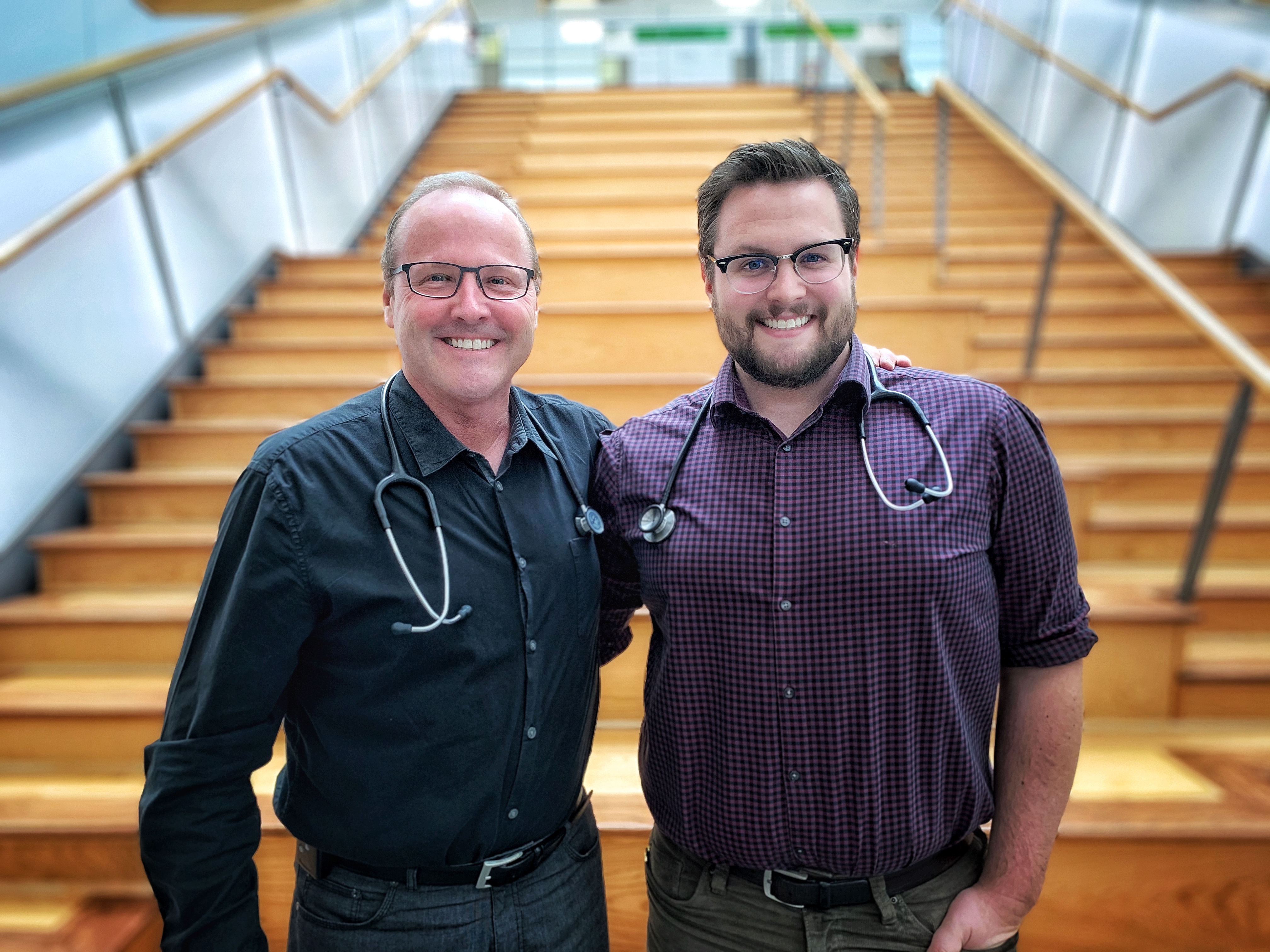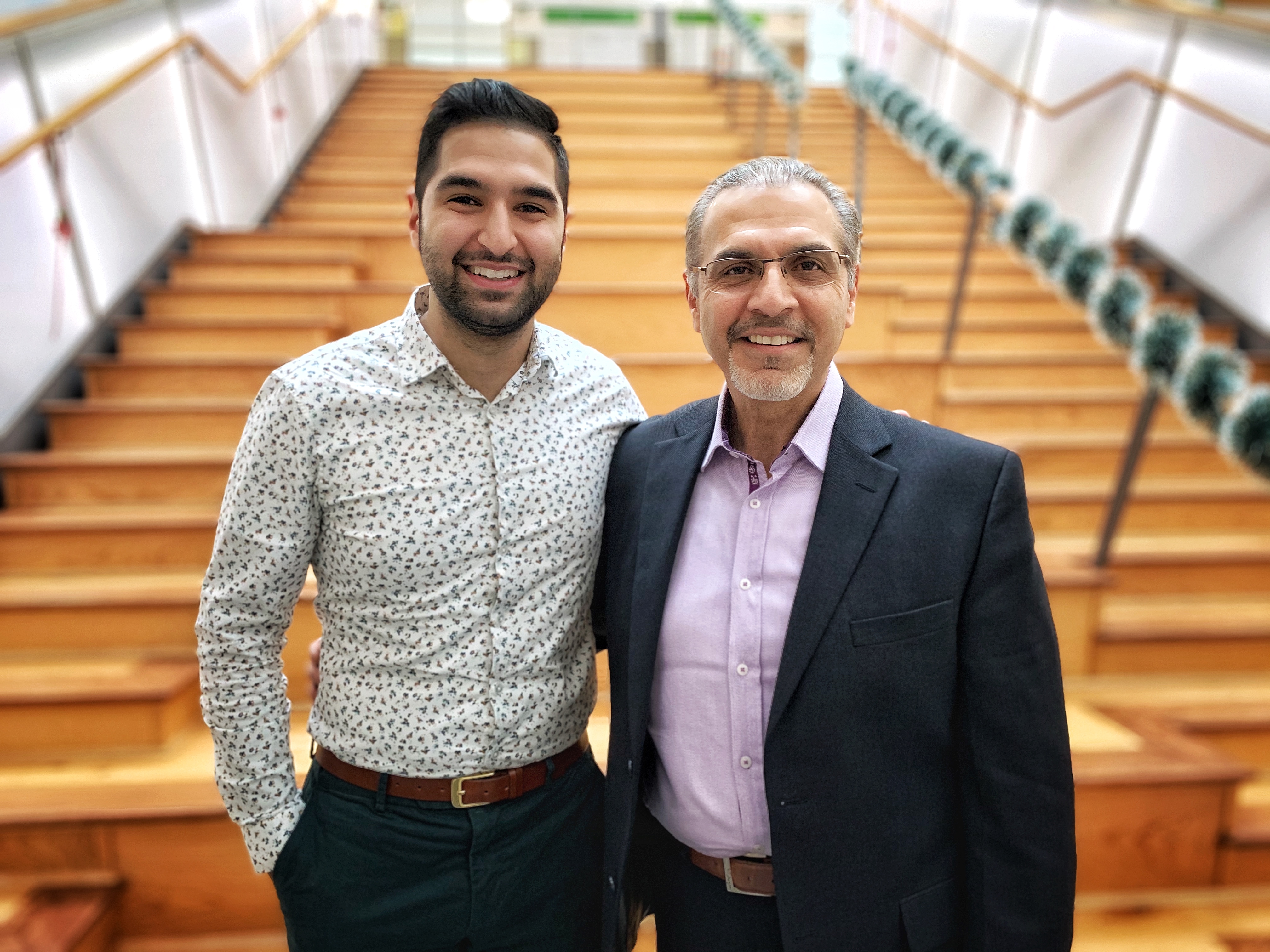Pediatrics remains all in the family
Tamara Vineberg - 25 February 2020

The Conradis have pediatrics in their family for three generations
Gerhard Conradi was one of the first pediatricians in Edmonton. Gerry, as he was known, immigrated to Canada in 1952 from Germany where he had trained in pediatrics. His son is pediatrician and clinical professor Alf Conradi. Alf grew up among the families and children in the waiting room of his father’s practice. “Having this visual image of the waiting room really had an impact on me as a child. Families would come in bringing eggs and chickens to pay him or to thank him,” he says. “My dad loved the challenge of helping kids when there was no one else who could do these things.”
Alf spent summers helping Gerry with the office files. The exposure to pediatrics had an influence on Alf, who decided by high school that he wanted to follow in his father’s footsteps. “My dad always expressed this passion for what he was doing and how fortunate he was to be able to help children. He told me that a pediatrician will always have a job and will always be there to help people. It drove me to go into pediatrics,” says Alf.
Alf studied at the University of Alberta to complete a bachelor’s of science and a medical degree. He went to Calgary for the first two years of general pediatrics and finished that residency in Toronto. In 1988, he returned to Edmonton to practice with his father for two years. Alf realized he enjoyed the challenge of acute care, so returned to Toronto to specialize in pediatric critical care. After his training, he balanced time in the intensive care unit with work at Gerry’s clinic. Gerry worked as a pediatrician until he was 80 years old, and his influence spread to yet another generation during his long career.
Alf’s son, Nick Conradi, was also influenced by experiences with Gerry. “I have some memories of the clinic itself but the impact came later when someone would recognize my last name and say, ‘Your grandfather was my pediatrician or my children’s pediatrician’.”
Nick and his two brothers would often go several days without seeing their father Alf, who was busy working at the hospital. “My mom would bring us over for lunch sometimes so we could see where dad worked. I remember he would walk us around and introduce us to the families or patients,” says Nick.
Nick’s first exposure to medicine was when his younger brother, Peter, was born with complications and seeing him tube fed at home. This influenced his decision to follow the pediatrics path. Alf says, “Nick was somebody with a tremendous amount of energy and curiosity. It was towards the end of high school when he started to express an interest in medicine.”
Nick studied biological sciences and human geography, completing a bachelor’s degree at the U of A. “By studying human geography, I learned about where people live, why they live and how that impacts their health and well-being. The fusion of biological sciences and human geography piqued my interest in what the big picture applications are for healthcare and what can be done to improve people’s health. This got me interested in public health,” he explains. Nick went on to graduate from King’s College in London, England with a master’s of public health.
After working a few years in the private sector, he went to the University of Limerick in Ireland for a medical degree. Currently, Nick is obtaining a PhD in pediatrics at the U of A under the supervision of Michael Hawkes, associate professor in the Division of Infectious Diseases. His next goal is to complete a residency in pediatrics.
Three generations of pediatricians can leave a legacy. “The question is, ’What is my family’s legacy in healthcare?’ asks Nick, pausing a few moments before answering. “To me, it’s always been service to the community. That’s the legacy that I’ve been left with to continue.”
The Mians take two different paths for pediatrics

He balanced his life and career between his family, clinic and the hospital. He would take his son, Qaasim Mian, to work and have him wait while he finished his hospital rounds. This had an impact on Qaasim. “Obviously, my dad was a role model and I saw how much he loved his job. That was one of the reasons that I was motivated to go into medicine. But when I got into med school, I told him I’m never going to do pediatrics,” says Qaasim.
Qaasim changed his mind about pediatrics once he gained more exposure in medical school, but he still took a different route than his father’s career. Qaasim decided to complete a five-year combined study program and obtained a master of business administration while in medical school. He’s currently completing a master’s in public health as he finishes residency. Plus, he’s the project manager for a solar oxygen research project.
Nadeem has watched how his youngest child, Qaasim, has balanced his post-secondary degrees and extracurricular activities. “He is extraordinary. I think he’s doing so many other things besides pediatrics, which makes me even more proud and humbled at the same time,” he says.
Qaasim is focused on general pediatrics and global health. “I’m interested in the policy side of things and researching how I can make an impact on the community. I think even locally you can help with a lot of our underserved populations,” he says.
He adds that Nadeem never pushed him into pediatrics. “I think I chose it because of the passion I saw he had, how much he loved his job and how much he made a difference with his patients.That was something I wanted to emulate,” says Qaasim.